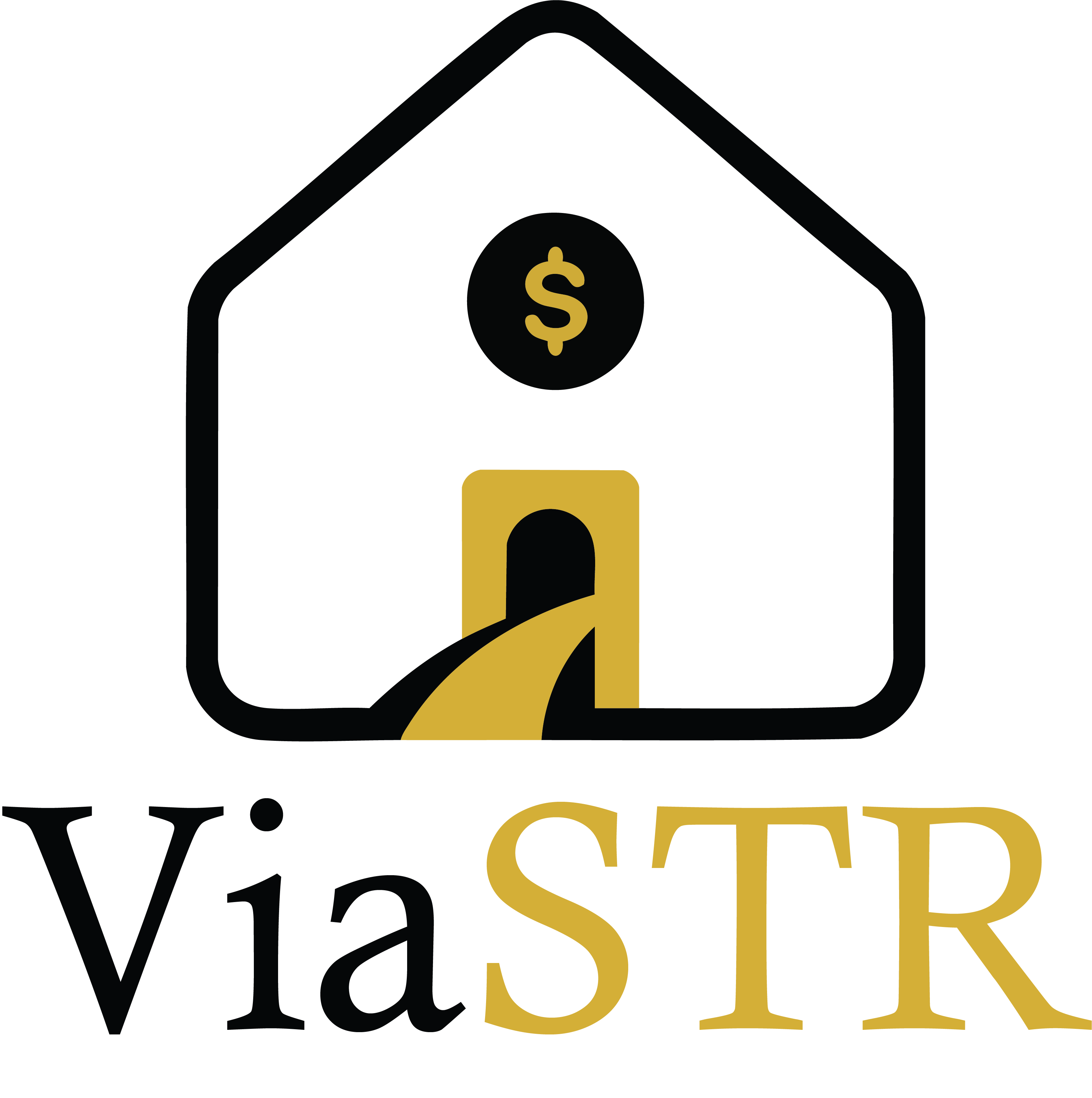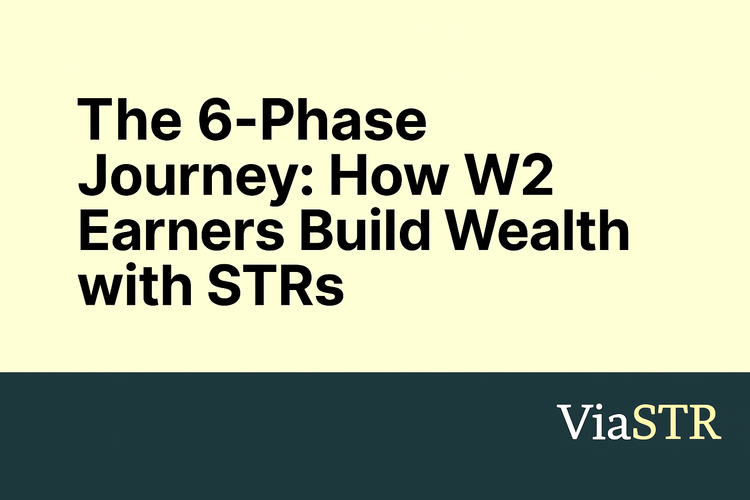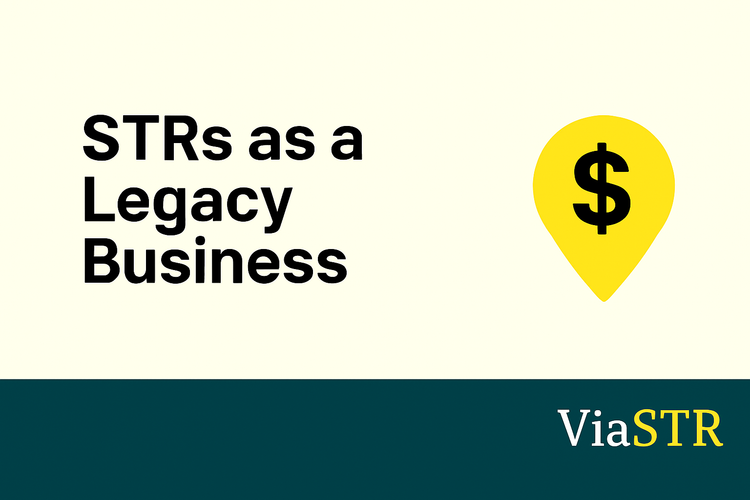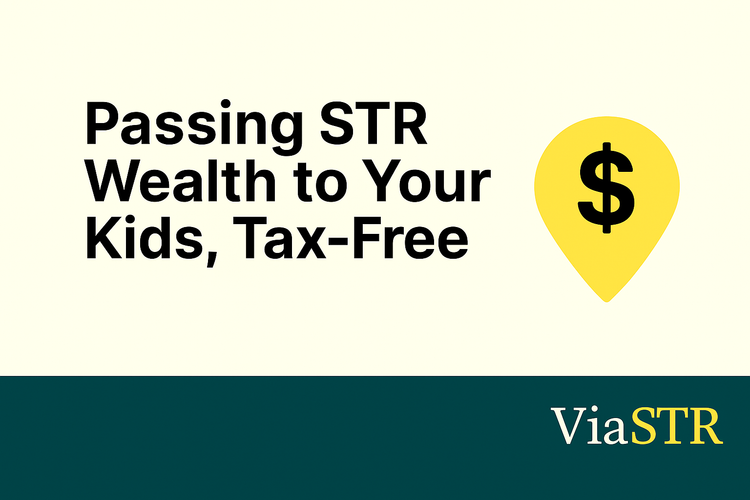Airbnb’s Simplified Pricing Shakeup: What Hosts Need to Know Before October 27

At a Glance: Key Takeaways
- Airbnb is mandating Simplified Pricing for all PMS users by October 27th.
- Hosts will now pay the entire 12.5% service fee instead of just 3%.
- Raising nightly rates to cover fees may hurt your competitiveness in Airbnb’s ranking algorithm.
- Underwriting and profitability calculations for STRs will need to be adjusted immediately.
- Free workshop with Erik Courson of STR Tech Talk will break down host strategies (registration link below).
Why This Matters for Every STR Host
Until now, Airbnb used a split-fee model:
- Hosts paid 3% service fee.
- Guests paid 12.5% service fee.
Starting October 27th, 2025, Airbnb is rolling out Simplified Pricing for all Property Management System (PMS) users:
- Hosts will now pay the full 12.5%.
- Guests won’t see a separate service fee line item.
This means if you’re running your numbers the old way, your profit margins just dropped overnight.
“This is MAJOR! A TON of hosts are going to see their fees skyrocket.”
Why You Can’t Just Raise Rates to Cover the Fee
It’s tempting to think: “Fine, I’ll just bump my nightly rate by 12.5%.”
But here’s the catch:
- Airbnb’s ranking algorithm favors competitively priced listings.
- Raising your rates too quickly could hurt your search visibility.
- Guests may compare your total price against other platforms like VRBO or Booking.com, leaving you at a disadvantage.
Bottom line: covering the fee isn’t always a simple math problem — it’s also a market positioning problem.
How Much Will This Actually Cost You?
Let’s run a simple example:
| Scenario | Old Model | New Simplified Model |
|---|---|---|
| Booking Amount | $1,000 | $1,000 |
| Host Fee | 3% ($30) | 12.5% ($125) |
| Guest Fee | 12.5% ($125) | $0 |
| Net Host Payout | $970 | $875 |
That’s a $95 hit per booking. Over dozens or hundreds of bookings per year, it adds up to thousands in lost revenue.
What Most Hosts Will Do (and Why That May Not Work for You)
Most hosts will:
- Raise nightly rates by 10–12%.
- Hope guests don’t notice.
- Absorb some margin loss.
But this one-size-fits-all strategy could backfire if your property is in a highly competitive market. For some, it may make more sense to:
- Diversify onto multi-platform booking channels.
- Experiment with direct booking websites.
- Adjust cleaning fees, length-of-stay minimums, or amenity add-ons to balance profitability.
The Bigger Picture: Underwriting & Deal Evaluation
If you’re an investor evaluating STR deals, this change directly impacts underwriting.
- That “12.5% guest fee” you used to ignore? It’s now YOUR expense.
- Pro forma models need to be updated to reflect lower net revenue.
- Lenders and underwriters will likely tighten assumptions, especially on DSCR loans.
Failing to adjust your numbers could make you overpay for properties or miss debt coverage thresholds.
Final Thoughts
This is one of the biggest Airbnb changes in years. Many hosts will be caught off guard and lose money because they don’t adjust quickly enough.
But if you get ahead of it — by re-underwriting, adjusting strategy, and learning how to respond — you’ll be in a stronger position than 90% of the market.
Now is the time to get educated, model the numbers, and build a plan.
See Also
- From Dual W2s to One REP: How Families Unlock Wealth, Time, and Tax Advantages with STRs
- 7 Airbnb Upgrades That Drive Reviews, ADR & Occupancy
- I Just Got a Rental — What Do I Do Next?
This article contains affiliate links. If you click and purchase, we may earn a commission at no extra cost to you.
As an Amazon Associate I earn from qualifying purchases.



